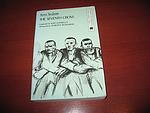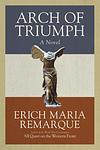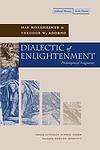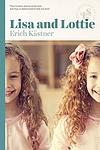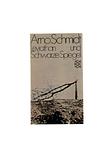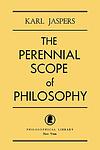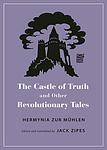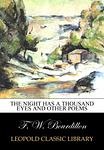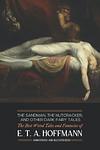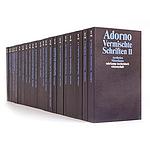The Greatest Unknown, German Books From 1940 to 1949
Click to learn how this list is calculated.
This list represents a comprehensive and trusted collection of the greatest books. Developed through a specialized algorithm, it brings together 291 'best of' book lists to form a definitive guide to the world's most acclaimed books. For those interested in how these books are chosen, additional details can be found on the rankings page.
Genres
Countries
Date Range
Reading Statistics
Click the button below to see how many of these books you've read!
Download
If you're interested in downloading this list as a CSV file for use in a spreadsheet application, you can easily do so by clicking the button below. Please note that to ensure a manageable file size and faster download, the CSV will include details for only the first 500 books.
Download-
1. Doctor Faustus by Thomas Mann
The novel is a reimagining of the Faust legend set in the context of the first half of the 20th century and the turmoil of Germany in that period. It tells the story of a composer who makes a pact with the devil, exchanging his soul for unlimited creative genius. The protagonist's life and work reflect the cultural and political journey of Germany leading up to World War II, providing a deep exploration of the individual's role in a society undergoing dramatic change. The novel is also a profound meditation on the nature of time, the art and the artist, and the destructiveness of human ambition.
-
2. The Glass Bead Game by Hermann Hesse
Set in the 23rd century, the novel revolves around a highly intellectual game, the Glass Bead Game, which incorporates all fields of human and cosmic knowledge. The story follows the life of Joseph Knecht, a scholar who becomes a Magister Ludi (Master of the Game). The book explores his life and thoughts, including his relationships with others and his questioning of the values of his society. The narrative is a profound exploration of human life, knowledge, and spirituality.
-
3. Mythology by Edith Hamilton
This book is a comprehensive guide to ancient Greek, Roman, and Norse mythologies, providing detailed accounts of various gods, goddesses, heroes, and other mythological creatures. It includes well-known stories like the Odyssey and the Iliad, along with lesser-known tales, and analyzes their significance in the cultures they originated from. The book also delves into the origins of these myths and their influence on later civilizations, offering readers a deep understanding of ancient cultures and their belief systems.
-
4. Mother Courage and Her Children by Bertolt Brecht
Set against the backdrop of the Thirty Years' War, the book tells the story of a canteen woman, Mother Courage, who pulls her cart with her three children across war-torn Europe. It explores her struggles and survival tactics as she tries to profit from the war while keeping her children safe. The narrative is a profound critique of war and its consequences, highlighting the human cost of conflict and the often futile search for prosperity and security in a chaotic world.
-
5. The Resistible Rise of Arturo Ui by Bertolt Brecht
"The Resistible Rise of Arturo Ui" is a satirical play that uses the rise of a fictional 1930s Chicago mobster, Arturo Ui, to parallel the rise of Adolf Hitler in Nazi Germany. The narrative is a critique of those who allowed Hitler to come to power, emphasizing that his rise was indeed resistible. The play explores themes of power, corruption, manipulation, and the dangers of complacency, showcasing the destructive potential of unchecked ambition and the failure of society to prevent the ascent of dangerous individuals.
-
6. The Seventh Cross by Anna Seghers
"The Seventh Cross" is a gripping tale set in Nazi Germany that revolves around seven men who escape from a concentration camp. The camp commandant erects seven crosses, vowing to hang each escapee on their return. The story primarily follows one escapee, who manages to evade capture and make his way back to his hometown. The narrative explores the psychological terror imposed by the Nazi regime, the resilience of human spirit, and the subtle forms of resistance within the German populace.
-
7. Arch Of Triumph by Erich Maria Remarque
Set against the backdrop of the looming Second World War in Paris, the narrative follows a German refugee and surgeon who is living without proper documents after escaping from Nazi Germany. Haunted by his past and the horrors he has witnessed, he navigates the dark streets of Paris, performing surgeries in a clandestine practice for other displaced immigrants. Amidst his struggle for survival and identity, he engages in a passionate but tumultuous love affair with an Italian woman, which brings temporary solace but ultimately leads to greater despair. The story is a poignant exploration of exile, loss, and the human desire for connection and meaning in the face of relentless adversity.
-
8. Dialectic Of Enlightenment by Max Horkheimer, Theodor Adorno
"Dialectic of Enlightenment" is a seminal philosophical work that explores the nature of enlightenment and its paradoxical relationship with the concept of reason. The authors argue that the Enlightenment's quest for knowledge, freedom, and autonomy has inadvertently led to the opposite: a form of domination and control through instrumental reason. They examine how the Enlightenment's rationality, once aimed at liberating individuals from myth and superstition, has devolved into a tool of oppression, giving rise to totalitarian systems and a culture industry that manipulates mass society. The book delves into various cultural artifacts, including literature, film, and popular culture, to illustrate how enlightenment has become self-destructive, ultimately questioning the possibility of true emancipation in a society governed by the very rationality that was supposed to set it free.
-
9. Lottie And Lisa by Erich Kästner
The book tells the charming story of identical twin sisters separated at birth who meet unexpectedly at a summer camp. Initially unaware of their relationship, the girls take an instant dislike to each other due to their identical appearances, but as they get to know one another, they discover their shared parentage. They decide to switch places, with each going to live with the parent the other has grown up with, in an attempt to reunite their estranged family. Through a series of heartwarming and humorous events, the twins work together to bring their mother and father back together, exploring themes of family, identity, and the bond between siblings.
-
10. Transit by Anna Seghers
A German man escapes from a Nazi concentration camp during World War II and finds himself stuck in Marseille, France, where he assumes the identity of a deceased author to secure a transit visa. As he navigates the bureaucratic maze of the immigration process, he becomes entangled in the lives of the refugees around him, including a desperate woman searching for her missing husband, the very man he's impersonating. The novel explores themes of identity, displacement, and the human struggle for freedom.
-
11. The Caucasian Chalk Circle by Bertolt Brecht
The play is a parable set in the Soviet Union that explores themes of justice, class struggle, and morality through the story of Grusha, a servant girl who risks her life to protect an abandoned child of noble birth during a time of revolution. As the child grows, a dispute over his custody arises, leading to a trial presided over by a wily, unconventional judge named Azdak. The trial's resolution hinges on the titular chalk circle test, which ultimately reveals the true nature of parental love and the importance of putting the needs of the child first. The narrative is a commentary on the social and political issues of the time, advocating for a society that prioritizes the welfare of its most vulnerable members.
-
12. Leviathan by Arno Schmidt
"Leviathan" is a complex narrative that delves into the psyche of a German intellectual coping with the aftermath of World War II. The protagonist, a reclusive translator, grapples with his own personal demons and the broader existential crisis of a nation in ruins. Through a series of introspective monologues and interactions with both real and imagined characters, the book explores themes of guilt, isolation, and the search for meaning in a world that has been irrevocably altered by the horrors of war. The novel's dense and challenging prose, combined with its allusions to mythology and literature, creates a rich tapestry that demands the reader's engagement with the historical and philosophical questions it raises.
-
13. Power Politics by Martin Wright
"Power Politics" is a comprehensive analysis of the dynamics of power in international relations. The book delves into the ways in which states interact with one another, the influence of power on these interactions, and the role of both military and economic strength in determining political outcomes. It examines the balance of power theory, the impact of alliances, and the strategies nations employ to enhance their influence on the global stage. The author also explores the implications of power politics for world peace and the potential for cooperation among nations in an environment often characterized by competition and conflict.
-
14. The Fear Of Freedom by Erich Fromm
The book explores the psychological and societal mechanisms that lead individuals to relinquish their autonomy and seek security in authoritarian systems, despite the inherent dangers of such a surrender. It delves into the historical context of the 20th century, particularly the rise of fascism and totalitarianism, to understand the paradoxical inclination of people to escape freedom's responsibilities. The author argues that true freedom requires not only the absence of external constraints but also the presence of inner psychological conditions that enable self-reliance, critical thinking, and the ability to love and connect with others. The work challenges readers to confront the difficult task of achieving positive freedom through self-awareness and the development of one's human potential.
-
15. The Structure And Practice Of National Socialism by Franz Neumann
The book provides a comprehensive analysis of the political, social, and economic systems of National Socialism in Germany from its rise to power to its functioning during World War II. It delves into the regime's ideologies, the role of terror and propaganda, the structure of the state, and the interplay between different power groups within the Nazi hierarchy. The author critically examines how the regime sought to create a totalitarian state, with a particular focus on the suppression of individual freedoms and the mechanisms of control used to maintain its authority. Through this exploration, the book offers insights into the complexities and contradictions of the Nazi system, as well as the devastating impact it had on society and the world at large.
-
16. The Perennial Scope Of Philosophy by Karl Jaspers
The book in question explores the enduring nature of philosophical inquiry, examining how it transcends temporal and cultural boundaries to address fundamental questions of existence, knowledge, and ethics. The author argues that philosophy is not confined to any particular era or dogma but is a continuous pursuit of truth that evolves with human thought while remaining rooted in the quest for universal understanding. Through a critical examination of historical philosophical movements and their contributions to the ongoing dialogue, the work emphasizes the importance of philosophy in providing a framework for individuals to confront the mysteries of life and the universe, encouraging readers to engage in their own philosophical contemplation.
-
17. Man Meets Dog by Konrad Lorenz
In "Man Meets Dog," the author explores the deep bond between humans and dogs, tracing the origins and development of this unique relationship. Through a combination of personal anecdotes and scientific insights, the book delves into various aspects of canine behavior, psychology, and the evolutionary factors that have shaped the human-dog partnership. The author, an eminent ethologist, uses his observations of his own dogs to illustrate broader themes about communication, affection, and the instinctual basis of domestication, offering readers a thoughtful reflection on why dogs hold such a special place in human society.
-
18. Shum Bola by G'afur G'ulоm
"Shum Bola" by G'afur G'ulоm is a captivating and thought-provoking novel set in a remote village in Uzbekistan. The story revolves around the life of Shum Bola, a young and ambitious shepherd who dreams of escaping the confines of his traditional rural life. Through his journey, the novel explores themes of love, sacrifice, and the clash between tradition and modernity. With vivid descriptions and rich character development, "Shum Bola" offers a compelling narrative that transports readers to a world filled with cultural complexities and personal struggles.
-
19. The Black Brothers by Lisa Tetzner
"The Black Brothers" is a captivating historical novel set in 19th-century Switzerland. It tells the story of four brothers, who, due to unfortunate circumstances, are forced to work as chimney sweeps. Through their perseverance and unity, they navigate the harsh realities of their profession and form a strong bond with each other. The book explores themes of resilience, friendship, and the fight for justice, making it a compelling and heartwarming read.
-
20. Night Has A Thousand Eyes by George Hopley
"Night Has A Thousand Eyes" is a gripping psychological thriller that follows the life of a troubled man named John, who possesses an uncanny ability to foresee tragic events before they occur. Plagued by his gift, John becomes increasingly isolated and tormented, as he struggles to prevent the impending disasters that haunt his visions. As the line between reality and premonition blurs, John embarks on a desperate quest to understand the origins of his power and find a way to break free from its relentless grip.
-
21. And The Darkness Falls by Boris Karloff
"And The Darkness Falls" is a chilling tale that follows a small town plagued by a series of mysterious deaths. As the darkness engulfs the community, a group of unlikely heroes must uncover the sinister secrets lurking beneath the surface. With suspenseful twists and turns, the book explores themes of fear, redemption, and the power of unity in the face of darkness.
-
22. Track by Ernst Bloch
"Track" is a philosophical exploration of the concept of utopia and the human desire for a better future. The author argues that utopia is not a specific place or time, but a driving force in human consciousness that propels us forward. Throughout the book, he delves into various aspects of culture, philosophy, and politics to illustrate his points, suggesting that the longing for utopia is a fundamental part of human nature and a necessary component of any progressive social change.
-
23. The Best Tales Of Hoffmann by E. T. A. Hoffmann
"The Best Tales of Hoffmann" is a collection of captivating and imaginative stories written by E. T. A. Hoffmann. This anthology showcases the author's unique blend of fantasy, horror, and romance, taking readers on a journey through mysterious and enchanting worlds. From a man's obsession with a mechanical doll to a musician's encounter with a supernatural violin, each tale is filled with suspense, intricate plots, and vivid characters that will leave readers spellbound.
-
24. Philosophy of Modern Music by Theodor Adorno
This book offers a comprehensive analysis and critique of modern music, focusing on the works of two prominent 20th-century composers. The author explores the relationship between society and music, arguing that the evolution of music reflects changing social and political landscapes. The text suggests that the dissonance and atonality in modern music reflects the alienation and disillusionment of modern society. The book is a seminal work in the field of music philosophy and is renowned for its in-depth exploration of the societal implications of musical developments.
-
25. The Reluctant Orphan by Sara Seale
This novel follows the emotional journey of a young girl who, after losing her parents in a tragic accident, is forced to navigate the complexities of the foster care system. Struggling with feelings of abandonment and the longing for a place to call home, she encounters a series of foster families, each experience shaping her understanding of love, resilience, and the true meaning of family. Through her eyes, readers are offered a poignant exploration of loss, the search for identity, and the power of human connection to heal and transform even the deepest wounds.
Reading Statistics
Click the button below to see how many of these books you've read!
Download
If you're interested in downloading this list as a CSV file for use in a spreadsheet application, you can easily do so by clicking the button below. Please note that to ensure a manageable file size and faster download, the CSV will include details for only the first 500 books.
Download




